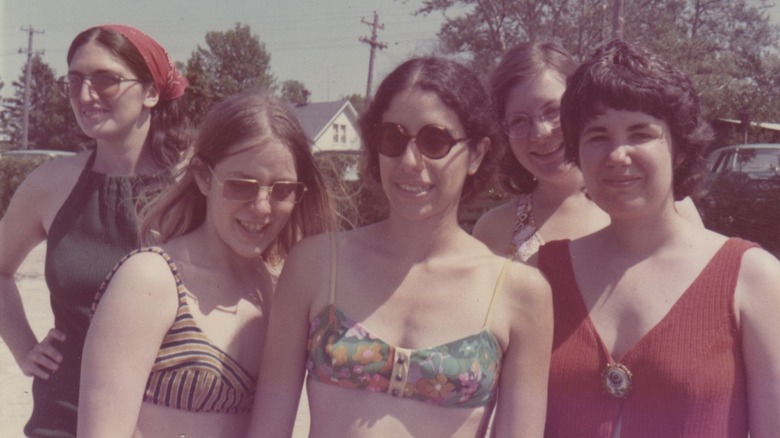The Janes Review: A Grim Reminder Of (Pro) Life Before Roe V. Wade
The following article includes reference to sexual assault.
Unassuming and gentle, yet equal parts fierce and fearless, the women at the center of HBO's documentary "The Janes" are impossible not to admire. These are a collection of feminists from various backgrounds who came together to help women in need — regardless of the laws. The overall message of the film, which originally premiered back in January at Sundance, feels eerily prescient these days, asking: do we not share an "obligation to disrespect a law that disrespects women?"
Over the years, the Jane Collective helped thousands of women to safely terminate their pregnancies — liberating these people by putting them in control of their own bodies. The organization advertised its services all over Chicago, putting up cryptic messages like "Pregnant? Call Jane." Some doctors reportedly even referred patients to the collective. The organization helped all sorts of women but was particularly important for lower-income women who didn't have the option to travel for the procedure. The clients paid what they could for the services — which eventually were performed by the "Janes" themselves, despite them lacking formal medical training.
It's easy to forget just how unforgiving society was towards unwed pregnant women — even as recently as the 1970s. In one particularly depressing anecdote, a female student is raped, resulting in pregnancy. When she goes to see a doctor, she is chided for her "promiscuity." Women recall how in their youth, contraceptives like the pill or diaphragms were really only accessible if your doctor — who was almost certainly male — approved it. In Chicago, which in the 1960s and 1970s was heavily Catholic, this often meant unmarried patients were out of luck. It wasn't unheard of for women to wear wedding rings and sign their name "Mrs." in order to get birth control. How many honest women, uncomfortable with lying to a doctor, just didn't have birth control? And how many of those women would eventually end up with unwanted pregnancies?
Is it any wonder then that an organization like The Jane Collective became such a powerful social presence in the Chicago area?
Chicago women took back control of their bodies
The Jane Collective changed the lives of so many women, spreading not just information, but a new ideology: we are in this together. Directed by Tia Lessin and Emma Pildes, the movie has a strong sense of sisterhood. There are men who participate in the story, but the lifeblood is the women. Care is taken to present these feminists in a dignified light; they come across as empowered, enlightened, and deeply empathetic.
"The Janes" is a powerful retrospective that reminds viewers what is at stake if Roe V. Wade is overturned. Women died. Lots of women died. Women, faced with a nine-month pregnancy they do not want (the reasoning why doesn't matter) are apt to become desperate — and desperate people make dangerous choices. With few other options, the pregnant women of Chicago turned to untrustworthy means. As OB-GYN Dr. Allan Weiland, MD testifies, his hospital literally had a "septic abortion" ward, and he recalls it almost always being full — and fatalities being common. How chilling it is to think that the hospital could not legally offer safe ways for women to terminate pregnancies, but needed a dedicated space to help all the women suffering the traumatic effects of getting an illegal abortion?
The documentary makes an effort to drive home just how much harm illegal abortions cause — but in terms of the presentation, more could have been done to highlight the horrific and tragic nature of the real history. Yes, there are sad stories about how dangerous these back-alley procedures could be — tales of vulnerable young women dying from infection or being sexually assaulted by the "doctors" they paid for treatment — but at times, the documentary's tone undermined this message. Perhaps because I already knew about the history, I was actually a bit disappointed that the sheer weight of the situation wasn't given more pathos. A haunting, sad score, or images of real women who died because of illegal abortions, would have made more of an impact. The stakes here are high: people died. And in 2022, access to abortions in America is actually being taken away. What the Jane Collective did in the 1960s and '70s s very cool, but we're not exactly on safe ground to be looking back and celebrating a "win."
As much as I love the rebellious spirit of the '60s, and the music that came along with it, including these elements in "The Janes" occasionally felt like it confused the message. There was also time spent on other subjects — like the Black Panther movement — that felt unnecessary, taking screen time away from discussions of women's reproductive rights. Still, there is a lot to learn from, and a lot to love about, "The Janes."
/Film Rating: 7 out of 10
